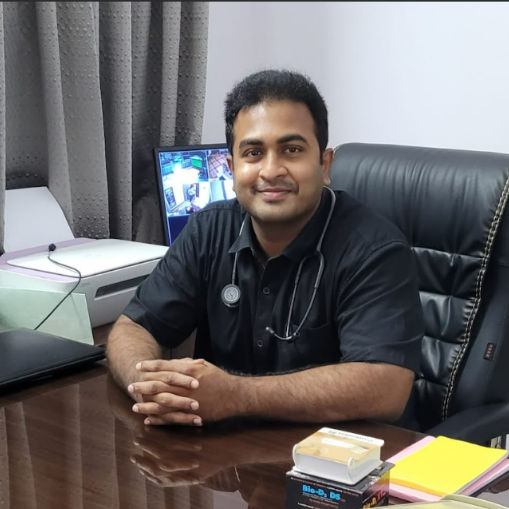Understanding High BUN/Creatinine Ratios
Learn about BUN/creatinine ratios, the significance of the ratio, causes, and symptoms. Learn the tips to manage the ratio naturally.

Written by Dr. Rohinipriyanka Pondugula
Reviewed by Dr. D Bhanu Prakash MBBS, AFIH, Advanced certificate in critical care medicine, Fellowship in critical care medicine
Last updated on 20th Aug, 2025

Introduction
If you’ve recently had a blood test and your doctor mentioned a high BUN/Creatinine ratio, you might be wondering what it means and whether you should be concerned. This guide will help you understand what these terms mean, why the ratio matters, and what steps you can take to manage it.
What Are BUN and Creatinine?
Before diving into the ratio, let’s break down what BUN (Blood Urea Nitrogen) and Creatinine are:
BUN measures the amount of nitrogen in your blood that comes from urea, a waste product formed when your body breaks down proteins. Your kidneys filter urea out of your blood, and it is excreted from your body through urine.
Creatinine is another waste product, produced by your muscles as they work. Like urea, your kidneys filter creatinine out of your blood.
Both BUN and creatinine levels help doctors assess how well your kidneys are functioning.
Consult Top nephrologist
What Does a High BUN/Creatinine Ratio Mean?
A high BUN/Creatinine ratio means that your BUN levels are elevated compared to your creatinine levels. This can happen for several reasons, including:
Possible Causes of a High BUN/Creatinine Ratio
Multiple reasons are a cause for a high BUN/Creatinine ratio, including the following:
1. Dehydration
If you’re not drinking enough water, your blood becomes more concentrated, leading to higher BUN levels.
2. High-Protein Diet
Eating too much protein can increase urea production, raising BUN levels.
3. Kidney Problems
If your kidneys aren’t filtering waste properly, BUN can build up in your blood.
4. Gastrointestinal Bleeding
Bleeding in the stomach or intestines can increase protein breakdown, raising BUN.
5. Heart Failure or Shock
Reduced blood flow to the kidneys can affect their ability to filter waste.
6. Certain Medications
Some drugs (like corticosteroids or diuretics) may affect BUN levels.
Symptoms to Watch For
If your BUN/Creatinine ratio is high, you might experience:
- Fatigue or weakness
- Swelling in the legs or feet (oedema)
- Decreased urination or dark-colored urine
- Nausea or loss of appetite
- Confusion or difficulty concentrating in severe cases.
If you notice these symptoms, it’s important to consult a doctor for further evaluation.
How to Manage a High BUN/Creatinine Ratio?
Depending on the cause, you can take steps to improve your kidney health and balance your BUN/Creatinine ratio:
1. Stay Hydrated
- Drink enough water daily. About 8-10 glasses unless your doctor advises otherwise.
- Avoid excessive caffeine or alcohol, as they can dehydrate you.
2. Adjust Your Diet
- Moderate protein intake
If you eat a lot of meat, dairy, or protein supplements, consider reducing portions. - Limit salty foods
Too much sodium can strain your kidneys. - Eat kidney-friendly foods
Fruits, vegetables, whole grains, and healthy fats support kidney function.
3. Monitor Medications
- Some medications, like NSAIDs, can affect kidney function. Always check with your doctor before taking new medicines.
4. Manage Underlying Conditions
- If you have high blood pressure, diabetes, or heart disease, keeping them under control helps protect your kidneys.
5. Get Regular Check-ups
- Routine blood and urine tests can help track your kidney health.
When to See a Doctor?
If your BUN/Creatinine ratio is high and you experience symptoms like:
- Severe fatigue
- Swelling in the legs or face
- Difficulty urinating
- Persistent nausea or vomiting
It is important to consult a doctor immediately. Early detection and treatment can prevent further kidney damage.
Final Thoughts
Bun and creatinine are the indicators of how the kidneys are functioning. The ratio of BUN/creatinine is helpful as it may be due to gastrointestinal bleeding, dehydration and sometimes heart issues as well. It is always good to know the symptoms and visit your doctor if required. Follow some natural methods to keep the ratio at healthy levels.
Consult Top nephrologist
Consult Top nephrologist

D. Akshay Zalavadiya
Nephrologist
3 Years • MBBS, MD, DM Nephrology
Ahmedabad
Beacon kidney consult, Ahmedabad

Dr. Siddharth Herur
Nephrologist
4 Years • MBBS, MD General Medicine, DM Nephrology
Kurnool
Medicover hospital and Gurudatta poly clinic, Kurnool

Dr. Govardhan Gupta
Nephrologist
15 Years • MBBS, DNB General Medicine, DrNB Nephrology
Mumbai
Oscar Superspeciality Hospital, Mumbai

Dr. Anantha Rao
Nephrologist
7 Years • MBBS, DNB (General Medicine), DNB (Nephrology)
Kurnool
Aakash hospital and KIMS hospital, Kurnool

Dr. S Bipin Kumar
Nephrologist
13 Years • MBBS, MD General Medicine, DM, Nephrology
Rajamahendravaram
SG KIDNEY CARE, Rajamahendravaram
Consult Top nephrologist

D. Akshay Zalavadiya
Nephrologist
3 Years • MBBS, MD, DM Nephrology
Ahmedabad
Beacon kidney consult, Ahmedabad

Dr. Siddharth Herur
Nephrologist
4 Years • MBBS, MD General Medicine, DM Nephrology
Kurnool
Medicover hospital and Gurudatta poly clinic, Kurnool

Dr. Govardhan Gupta
Nephrologist
15 Years • MBBS, DNB General Medicine, DrNB Nephrology
Mumbai
Oscar Superspeciality Hospital, Mumbai

Dr. Anantha Rao
Nephrologist
7 Years • MBBS, DNB (General Medicine), DNB (Nephrology)
Kurnool
Aakash hospital and KIMS hospital, Kurnool

Dr. S Bipin Kumar
Nephrologist
13 Years • MBBS, MD General Medicine, DM, Nephrology
Rajamahendravaram
SG KIDNEY CARE, Rajamahendravaram